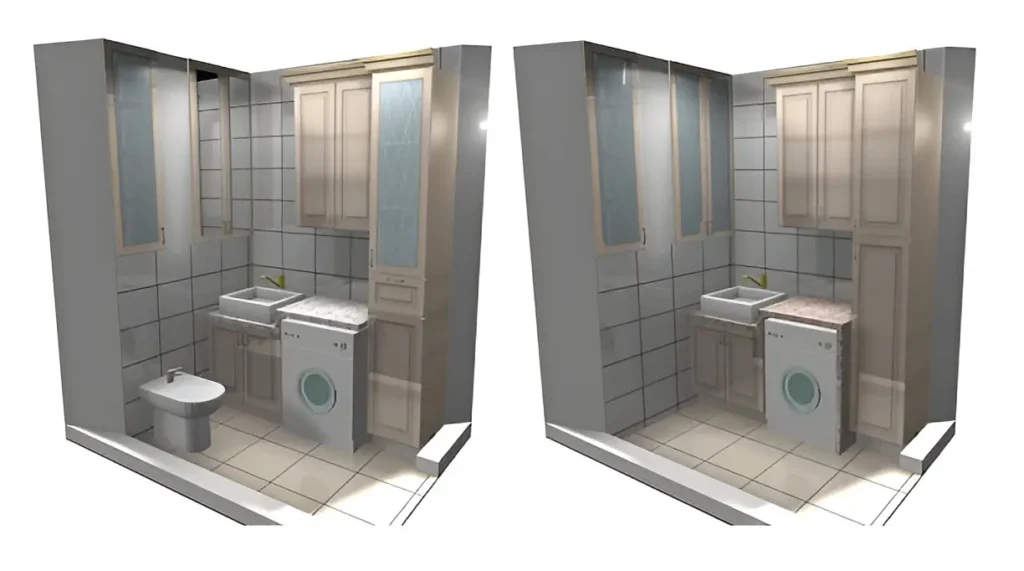Why Consider a Tub-to-Shower Conversion?
In today’s fast-paced world, practicality often takes center stage in home improvement projects. Tub to shower conversions are gaining widespread popularity. This transformation not only modernizes the look of a bathroom but also profoundly enhances its functionality. For many, switching from a bathtub to a shower is a game changer, especially for individuals requiring more accessibility. Seniors or those with mobility challenges benefit significantly from a walk-in shower’s easy access compared to a traditional tub.
Beyond practicality, the aesthetic appeal of a sleek, walk-in shower must be recognized. Modern showers offer a sense of luxury and spaciousness that bathtubs often lack. With various design options available, homeowners can easily tailor the look and feel of their shower space to reflect personal style, whether through elegant tiling, frameless glass doors, or innovative showerheads that transform water pressure into a soothing experience.
The Conversion Process Explained
Transforming a bathtub into a shower requires a few simple steps focusing on practicality and aesthetics. Initially, the old tub must be carefully removed and handled swiftly with professional help. Subsequently, modern plumbing fixtures are installed to support the new shower setup. The choice of fixtures is crucial, as they lay the foundation for the overall shower experience, including options for eco-friendly showerheads or intricate nozzle systems that enhance water flow.
Typically, an average conversion takes a few days, significantly minimizing disruption to your daily routine. Though challenges may arise—such as dealing with outdated plumbing or compact spaces—a well-thought-out plan can mitigate potential issues. Most homeowners are pleasantly surprised by the efficiency and simplicity of the process. The sense of reward upon witnessing the completed transformation of a once-traditional tub space into a modern shower retreat is unmatched.
Design and Material Considerations
Many options for transforming a bathtub into a shower accommodate various preferences and budgets. Acrylic and fiberglass are commonly selected because they are long-lasting and simple to keep clean. These materials ensure longevity and simple upkeep, making them attractive for the busy homeowner. Alternatively, glass doors and tiles can imbue the shower with elegance and aesthetic appeal that other materials might not provide.
Selecting an open, barrier-free style can be particularly advantageous design-wise. Not only does it amplify the room’s visual space, but it also enhances accessibility for users. Keeping a checklist of priorities that balance aesthetics with functionality is beneficial when designing. This approach ensures a shower space that satisfies your design desires while remaining practical for everyday use and upkeep.
Cost Factors and Budgeting
The price of converting a tub into a shower may fluctuate depending on factors like materials, design details, and the level of professional assistance required. Generally, expenses can range from $1,000 to $7,000. A detailed budget accounts for potential unforeseen challenges; hence, allocating resources for unexpected occurrences during the conversion is wise.
Despite the initial investment, this transformation often yields financial benefits. A bathroom remodel enhances utility and aesthetics and increases a home’s resale value. Many homeowners find this appealing, as a modern bathroom is often a key selling point during real estate transactions.
Ensuring Safety and Accessibility
One of the standout benefits of tub-to-shower conversions is integrating advanced safety and accessibility features. Thoughtful additions like grab bars, anti-slip flooring, and built-in seating are designed to address mobility challenges, making the shower more accommodating for elderly individuals and those with disabilities. These enhancements not only prioritize user safety but also significantly improve the overall usability of the shower space.
Incorporating accessible designs fosters a safer bathing experience and adds considerable value to your home. As the demand for properties with inclusive features continues to rise, a thoughtfully converted shower can become a compelling selling point. This consideration is critical during real estate evaluations, as potential buyers increasingly seek homes that cater to diverse needs, ultimately enhancing the marketability of your property.
Environmental and Sustainability Benefits
Opting for a shower over a bathtub is an environmentally conscious choice. Showers typically use less water, leading to significant savings on water bills. According to the Environmental Protection Agency, families can save approximately 700 gallons of water per year by using efficient showerheads. This reduction is not only cost-effective but also benefits the environment.
Selecting sustainable materials and fixtures enhances the eco-friendly nature of the showering experience. With easy maintenance and reduced cleaning requirements, homeowners can relish a sustainable, hassle-free bathroom solution that aligns with broader environmental goals.
Real-Life Success Stories
Numerous homeowners have transitioned from tubs to showers, enjoying increased satisfaction and utility in their daily routines. One homeowner focused on accommodating an aging parent with limited mobility saw a noticeable improvement in daily convenience by installing a walk-in shower. This simple change transformed bathroom experiences, offering independence and safety.
Another project centered on modernizing an outdated bathroom design, resulting in a spa-like atmosphere that became a hub for relaxation and comfort. Such upgrades highlight the potential for improved lifestyle quality and increased home value. These testimonies showcase that the benefits of a shower conversion often extend beyond immediate utility, fostering improved wellness and home enjoyment.
Also Read –Practical Tips for Preventing Slip and Fall Accidents at Home and Work
